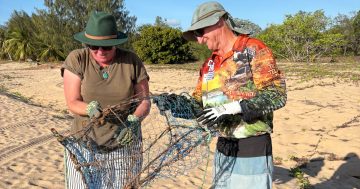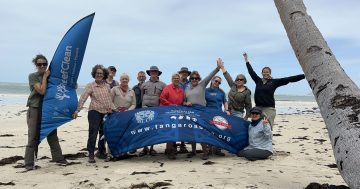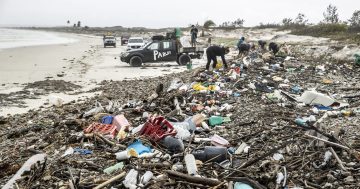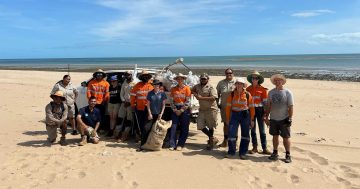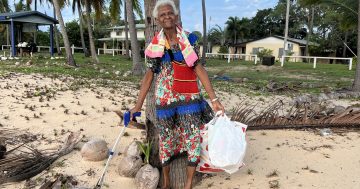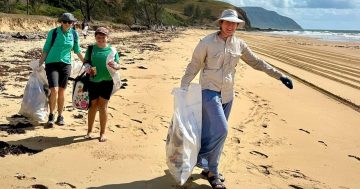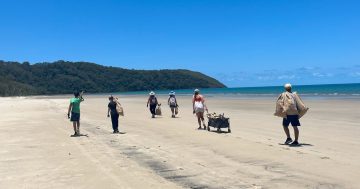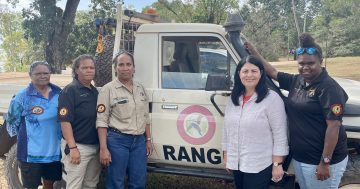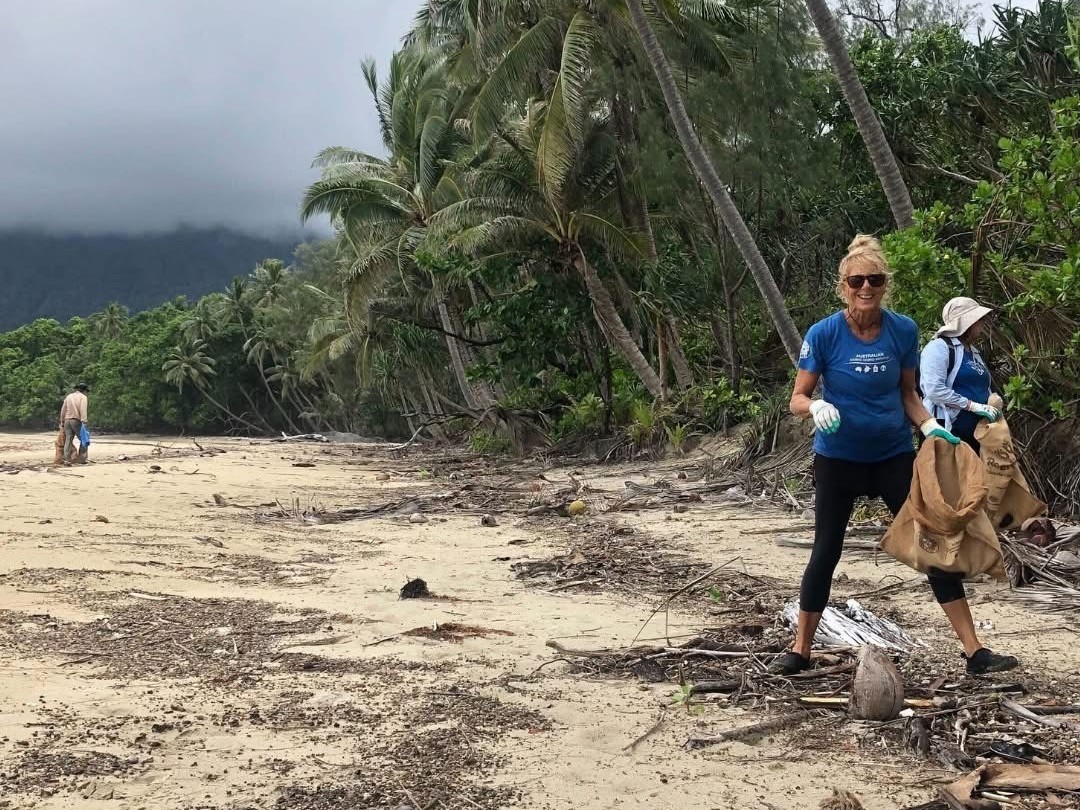
Marine debris weighing 329 kilograms was removed from Cedar Bay, about 40 kilometres south of Cooktown, as part of Tangaroa Blue’s Tropical Cyclone Jasper clean-up project. Photo: Supplied.
More than a year after Tropical Cyclone Jasper hit, a hidden Bloomfield beach is finally free of hundreds of kilograms of marine debris.
As part of Tangaroa Blue’s Tropical Cyclone Jasper clean-up project, volunteers and staff members collected 329 kilograms of rubbish from Cedar Bay earlier this month, taking on the advice of Traditional Owners and local rangers.
Tangaroa Blue chief executive officer Heidi Tait said it was the 11th clean-up since August 2024 undertaken as part of the project.
“We did an aerial survey by helicopter, and we had the Traditional Owners or nominated members of their ranger team fly to a section of their Country,” she said.
“We’re excited to continue to work with all the Traditional Owners and ranger groups, because it’s really important to support where we can, but also take guidance on where those priority areas are from a cultural perspective.”
With Cedar Bay inaccessible by road, Ms Tait said the wet weather had made it a challenge to access the area while debris built up.
“We’d been trying to get to Cedar Bay for ages, but the weather didn’t allow us to get into the site; you need perfect weather, and we needed a boat that was suitable,” she explained.
The project, which was funded through the State Government’s community sustainability action grants programs, has collected four tonnes of rubbish from beaches across Far North Queensland.
At Cedar Bay alone, 3,101 items of hard plastic, 577 lids, 70 polystyrene remnants and three GPS buoys were found.
Ms Tait said that even 15 months later, the aerial surveys revealed the environmental effects of Tropical Cyclone Jasper were far from gone.
“The thing that shocked me the most when I was in the helicopter doing the flight was how much mud and landslides were around the Bloomfield area, and how muddy the waters were, and that would’ve all smothered the reef,” she said.
“Those kinds of things are going to take much longer for the reef and for the environment to heal, but it’s good to be able to remove that additional pressure of plastics and rubbish and the rest of it.”


